How to Neutralise Bleach Smell in a Room
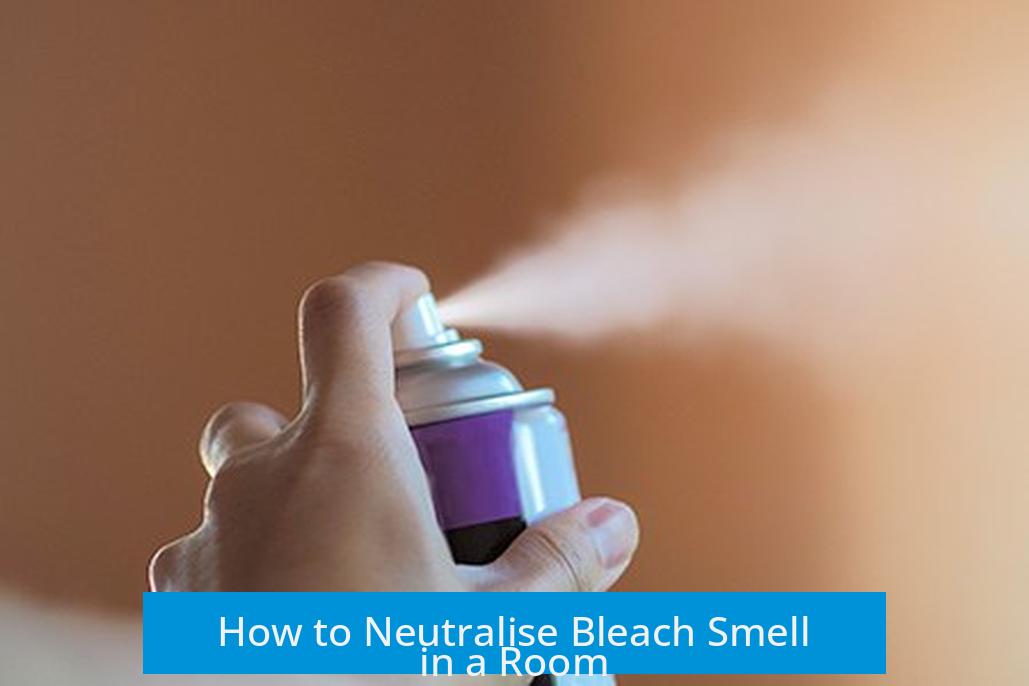
The best way to neutralise bleach smell in a room is to wash down the surfaces with plenty of water and ventilate the space thoroughly using a strategic airflow setup. Simply masking or using common household acids like vinegar will not neutralise the odor effectively.
Understanding the Bleach Odour
The strong “chlorine smell” does not come from the hypochlorite in bleach itself because hypochlorite is non-volatile. Instead, the smell is produced by chlorine gas, dichlorine monoxide, or chloramines. These arise from bleach breaking down or reacting with organic material such as proteins on walls.
Why Vinegar and Acids Are Not Effective
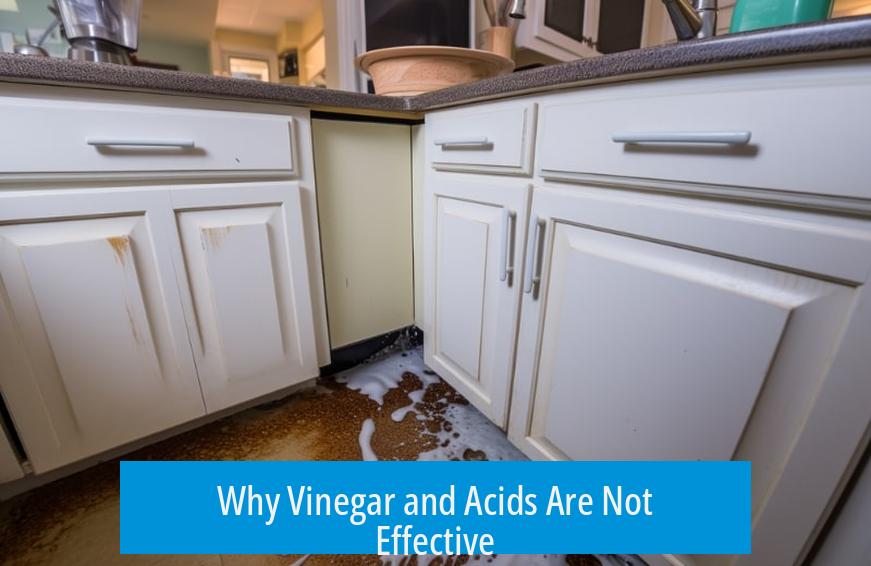
- The chlorine-related compounds causing the smell do not react with vinegar, so adding vinegar won’t neutralise or reduce the odor.
- Using vinegar can worsen the smell by mixing scents rather than eliminating them.
- Mixing acids like vinegar with bleach risks releasing harmful chlorine gas, so it must be avoided.
Lemon Juice and Odour Neutralisation
Lemon juice can neutralise odours chemically. However, applying lemon juice may create a new sticky residue or introduce a different smell. Its use indoors after bleach cleaning might not be practical.
Effective Practical Steps to Neutralise or Mask Bleach Smell
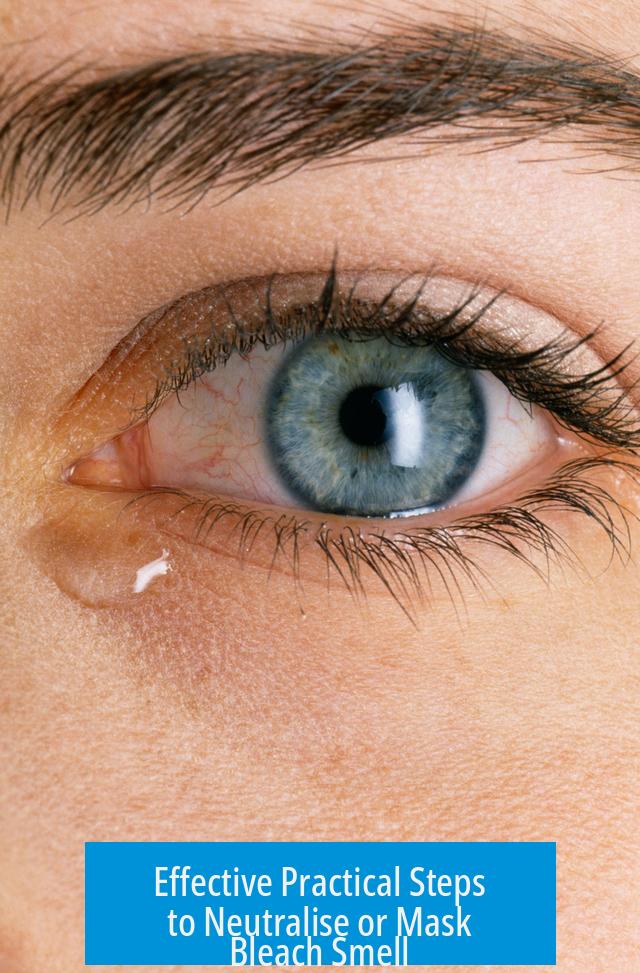
- Thorough Cleaning: Wash walls, floors, and surfaces with plenty of water to dilute and remove residual bleach and its reaction products.
- Ventilation Setup: Use one fan to blow air out of the room and another to bring fresh air in. This creates an airflow that removes the chlorine-smelling gases efficiently.
- Extended Airing: Keep the room ventilated for at least 24 hours to ensure most volatile compounds dissipate.
- Masking Temporarily: Use perfume or air fresheners to mask the bleach smell only after proper cleaning and ventilation.
Summary of Key Points
- Bleach smell comes from chlorine gas and related compounds, not hypochlorite itself.
- Do not use vinegar or other acids to neutralise the smell; they do not react effectively and can be hazardous.
- Rinse and wash surfaces generously with water to reduce residues.
- Ventilate the room well, using fans to create directed airflow to remove smell efficiently.
- Mask the smell with perfumes after cleaning, not as a sole solution.
Neutralise Bleach Smell in a Room: The Clean Solution Without the Nose Wrinkle
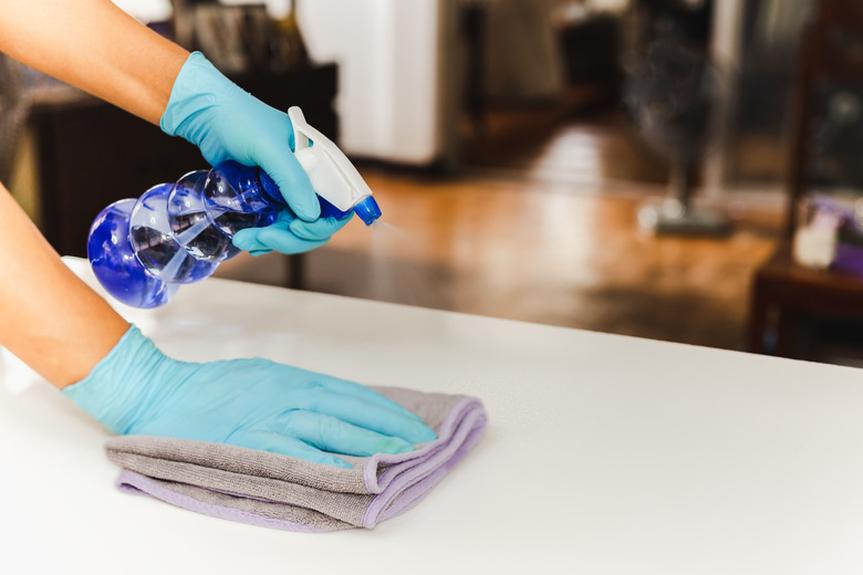
So, you’ve just finished cleaning with bleach. The room sparkles, but your nostrils stage a protest. That sharp, eye-watering chlorine smell lingers like an uninvited guest. What now? How do you neutralise bleach smell in a room without turning it into a chemistry experiment gone wrong? Let’s break it down—to clear the air, literally and literally.
Where Does That Bleach Smell Come From, Anyway?
It’s easy to think the hypochlorite in bleach is shouting for attention through that harsh smell. Actually, it’s *not* the hypochlorite itself causing the stink. Hypochlorite isn’t volatile, which means it doesn’t easily spray into the air as a gas.
The smell comes from gases like chlorine or dichlorine monoxide released when bleach breaks down.
There’s more: the hypochlorite can react with proteins on surfaces—like walls—creating chloramines. These smelly gases are the real culprits.
So, the next time you want to blame the bleach’s active ingredient, remember the smell is a sneaky byproduct of these chemical shenanigans.
Why Your Old Faithful Vinegar Won’t Save You (and Might Make Things Worse)
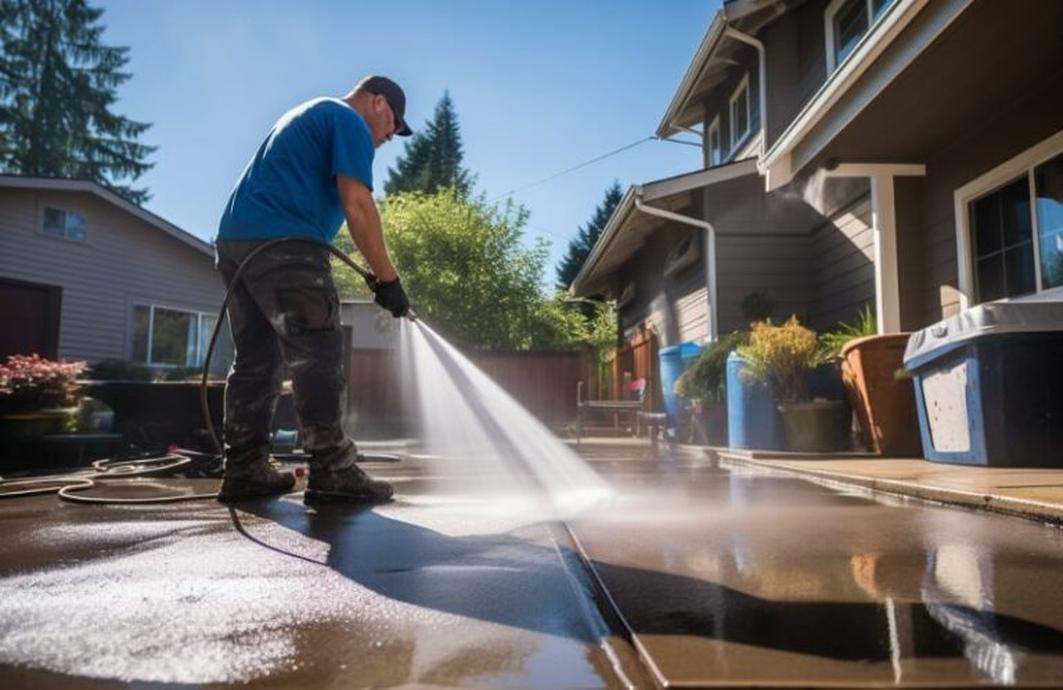
Vinegar: the universal antidote in many cleaning crises, right? Not here. Apparently, vinegar doesn’t react with these chlorine byproducts.
This means vinegar won’t neutralise the bleach smell. It’s like bringing a knife to a gunfight.
On top of that, vinegar has its own strong smell. Combining bleach’s sharp bite with vinegar’s sour tang? That’s a recipe for olfactory chaos.
Instead, just wash the walls thoroughly with water. Rinsing dilutes and removes leftover chemicals better than any kitchen acid can.
Lemon Juice: The Citrus Hero (But With a Caveat)
Lemon juice has some potential to neutralise bleach odors. Heard of that fresh lemon scent boosting your kitchen vibe? It’s because lemon juice contains acids that can react with certain chemicals, lowering their stinky impact.
But heads up: applying lemon juice might muck up your walls or surfaces.
So, lemon juice is a double-edged sword. Sure, it tackles odors, but it might leave a sticky or discolored mess. Use with care or stick to other methods.
Masking vs. Neutralising: Which One Works Best?
If getting rid of bleach smell immediately feels impossible, you can mask it temporarily.
- Use perfume or essential oils to cover the bleach’s harsh aroma.
- Opt for scents that don’t clash—lavender or eucalyptus can be good choices.
But don’t depend on masking as a long-term fix; it’s putting a band-aid on a leaky pipe.
The Art of Ventilation: More Than Just Opening a Window
You probably think cracking open a window will solve your problems. Well, it’s a start, but there’s a smarter way to hack ventilation.
Put a fan in the room that blows air out. If possible, place another fan blowing fresh air in from another spot.
You’re creating a flow that sucks the stinky chlorine gases out instead of just mixing stale and fresh air.
This double-fan technique is surprisingly effective, especially for stubborn chemical smells.
Speed Up Smell Removal: Wash, Ventilate, Repeat
Don’t forget the classic basics:
- Wash walls thoroughly with water right after using bleach to remove chemical residues.
- Ventilate the room for at least 24 hours to let trapped gases escape.
- If indoors, keep fans running after windows close to maintain airflow.
Patience is your friend here. The smell fades most effectively when you combine thorough rinsing with consistent airflow.
Safety First: What Not to Do
One absolutely critical tip: do NOT mix acids like vinegar or lemon juice directly with bleach.
This dangerous combo produces toxic chlorine gas that can seriously harm your lungs and health.
Your nose might protest at the bleach smell, but inhaling chlorine gas is a whole new level of terrible. Play it safe and avoid chemical cocktails.
Quick Recap: Your Go-To Bleach Smell Fixer
| Do | Don’t |
|---|---|
| Wash walls thoroughly with water | Use vinegar to neutralise smell |
| Ventilate room extensively (24+ hours) | Mix bleach with acids |
| Use fans effectively to create airflow | Rely solely on masking scents forever |
| Mask smell temporarily with perfume if needed | Ignore proper ventilation and rinsing |
To sum it up, neutralising bleach smell in a room is less about fancy remedies and more about understanding chemistry, being safe, and using boredom-defying airflow tactics. So roll up those sleeves, avoid mixing random chemicals, and get that room fresh again—without turning your nose into a swamp monster.
Ready to banish that bleach smell? Which ventilation strategy will you try first? Or do you have a secret trick to share? Let’s sniff out the best solutions together!
How does bleach produce the strong chlorine smell in a room?
The smell comes from chlorine gas or chloramines created when hypochlorite breaks down or reacts with proteins on surfaces. It’s not directly from the hypochlorite in bleach itself.
Why shouldn’t I use vinegar to get rid of bleach smell?
Vinegar doesn’t react with the chlorine compounds causing the smell. It won’t neutralize the odor and may make the room smell worse.
What ventilation method works best to clear bleach smell?
Use one fan blowing air out of the room and another bringing air in. This creates airflow that pulls the smell out instead of just pushing fresh air inside.
Can lemon juice help neutralize bleach odor in a room?
Lemon juice can neutralize the odor but may leave residue that dirties the room. It’s not a practical long-term solution.
What is the safest way to reduce bleach smell on walls?
Wash walls thoroughly with water multiple times. Then ventilate the space for at least a day to remove lingering odors safely.



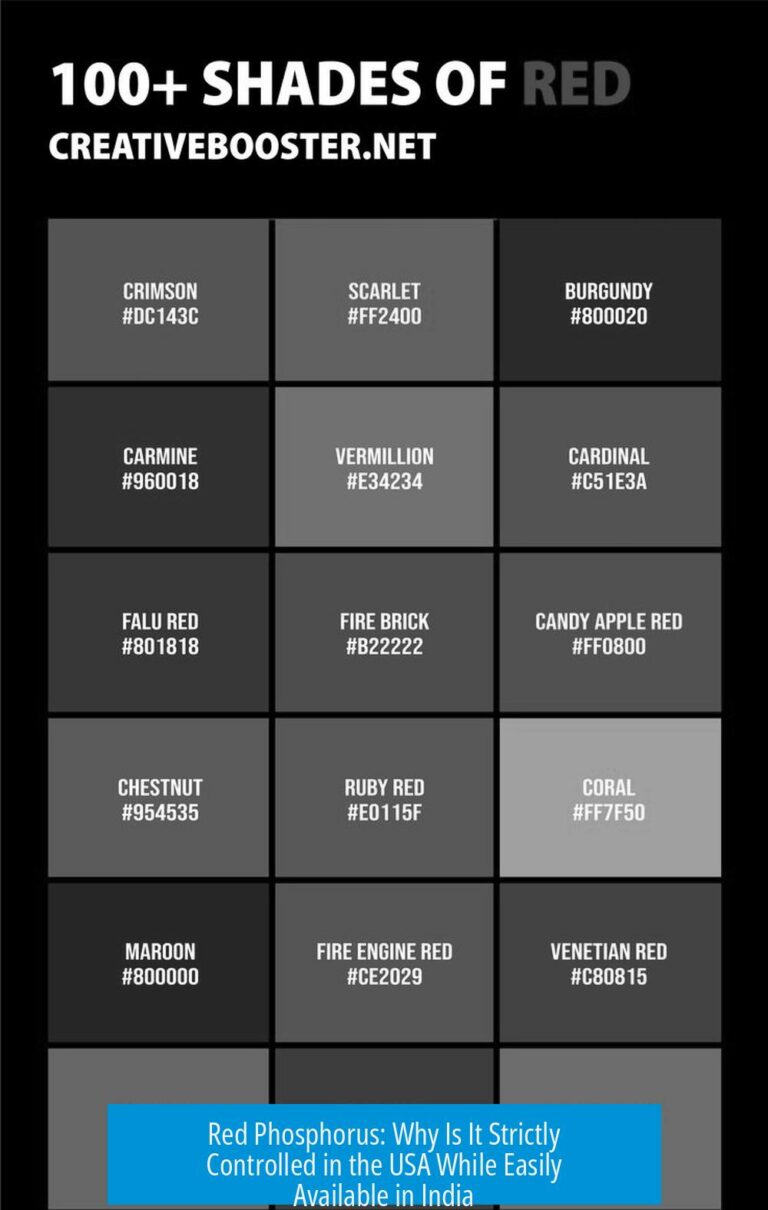
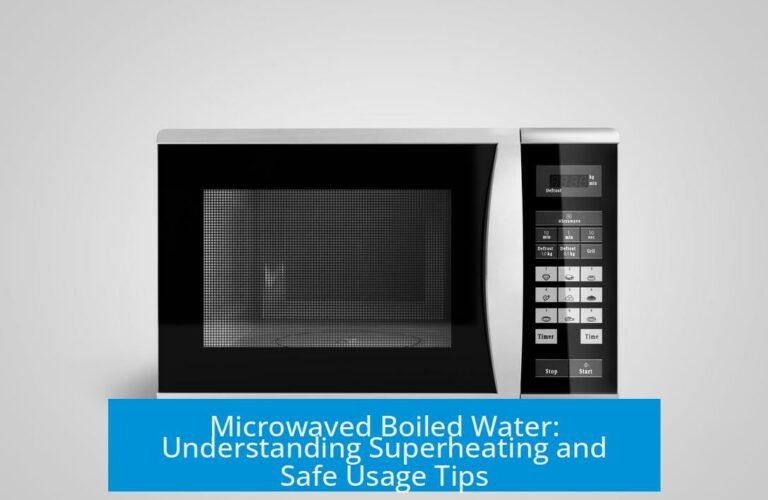
Leave a Comment